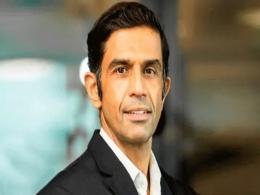At a time when India’s GDP is hovering around 5 per cent, strong measures were needed to spur growth in the infrastructure space when finance minister P. Chidambaram presented the Union Budget on Thursday. But at the end of the Budget speech, the bourses were clearly in the red, indicating mixed reactions (generally negative).
Infrastructure growth is essential for the overall growth of the country’s economy and the finance minister has taken certain initiatives in that direction. In a bid to mobilise funds, there will be tax-free infra bonds worth Rs 50,000 crore, to be floated in FY14. Two of the four infrastructure development funds or IDFs registered with the market regulator SEBI will also be launched in the coming fiscal. Moreover, a total of Rs 5,000 crore will be allocated to NABARD for building warehouses and godowns for food & fertiliser storage. Rural infrastructure has also got a boost as the corpus for its development fund has been raised to Rs 20,000 crore from Rs18,500 crore allocated in FY12, according to the NABARD site.
But the biggest commitment has come in terms of roads and transportation. A regulatory body will be formed to govern and supervise the delays persisting in existing road projects. Tenders for 3,000 km of road projects in central Indian states are also to be announced in the next six months. And after five years of planning, Chidambaram has finally announced that seven new industrial cities will be developed along the Delhi-Mumbai Industrial Corridor (DMIC). According to him, work has already started for the construction of Chennai-Bangalore and Mumbai-Bangalore industrial corridors, but specifics were not given in the Budget speech.
Commenting on the measures announced for the infra segment, Rajesh Lihala, chairman of Fourcee Infrastructure (the largest organised liquid cargo logistics company), said, “This budget has been extremely disappointing as there has been no clear path addressed on any front – be it infrastructure or taxes. They can keep announcing measures but there is nothing clear on the paper. We’ve had so many expectations, given what has happened over the past few years. But even now, most of the excise and customs duties remain unchanged.”
In contrast, S. Nandakumar, senior director at India Ratings & Research, saw promise prima facie, but found the devil in the details. “The announcement that 3,000 km of road projects will be awarded in the first six months seems a trifle ambitious as less than one-fourth of that number was achieved in the first eight months of FY13. Also, the budget addresses some of the many challenges faced by the infra sector although the agency recognises that solutions for some of the problems have to necessarily found outside the framework of the annual budget,” he said.
India will also see two new seaports come up in West Bengal and Andhra Pradesh and together, these should add 100 million tonnes of cargo capacity. The port at Thoothukkudi in Tamil Nadu is to be allocated Rs 7,500 crore for the construction of an outer harbour. But the only incentive that the government has to offer is that companies investing Rs 100 or more in plant and machinery during FY14-15 will be entitled to an investment allowance of 15 per cent.
However, with the infra sector featuring quite prominently in the budget, there are some positive reactions as well.
Hemant Kanoria, chairman of SREI Infrastructure, said, “Keeping in mind the existing macroeconomic realities, I feel the finance minister has presented a well-calibrated budget. I am especially excited about the proposal to step up domestic coal production by forming PPPs with Coal India Ltd. The decision to announce 3,000 km of new road projects, the proposal to build two new ports, dredging of national waterways and the proposal to create a grid augur well for the infrastructure sector.”
In the Energy sector, the finance minister was very clear with his intent but didn’t bare his teeth. Addressing the miseries of the coal ministry in India, Chidambaram stated that new policies would be announced to encourage PPP projects between Coal India and private players. The 5 MMTPA LNG terminal at Dhabol, Maharashtra, is expected to be fully operational in FY14. The government will also allocate Rs 1,840 crore to construct a power transmission system between Srinagar and Leh. The current budget has also allocated Rs 800 crore to incentivise wind energy projects.
(Edited by Sanghamitra Mandal)






